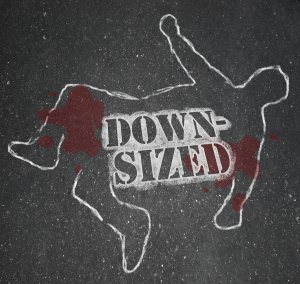Do you Ignore the Unemployed? 5 Ways to Spot Unemployment Discrimination Practices

It’s the un prefix that does the trick; the reversing of whatever follows it, the “not.” When we think of an employed person, words like responsible, dependable, smart and talented come to mind. Unemployed? The not steps in to say not responsible, not dependable, not smart and not talented. Unfortunate, yet true.
In the article “The Psychological Stigma of Unemployment: When Joblessness leads to Being Jobless” presented at the Academy of Management’s annual meeting last month, research showed potential employers think less of unemployed applicants — length of unemployment wasn’t a factor. The article was written by Geoffrey C. Ho, a doctoral candidate at the UCLA Anderson School of Management, Margaret Shih and Daniel J. Walters, both of UCLA Anderson, and Todd Lowell Pittinsky of Stony Brook University. It detailed three different experiments:
In one study, the team had 47 experienced HR professionals review identical resumes except half said the applicant was currently employed, and the other half said the individual was out of work for a month. The “currently employed” resumes received better scores for competence and hireability.
During a second experiment, the researchers had a group review identical resumes from employed and unemployed job candidates. The unemployed applicants were divided among people who voluntary resigned and those who were let go. The laid off group fared no better than those who had quit. The third study showed that job applicants whose previous employers went under received more sympathy.
In April, the mayor of Washington D.C. signed the Unemployed Anti-Discrimination Act of 2012 to protect the millions of Americans who are out of work. Recruiting software provider SmartRecruiters started an anti-discrimination campaign last year asking businesses to commit to interview at least one unemployed candidate for every job opening. The issue is gaining attention, but what about the awareness of those companies and HR professionals doing the recruiting?
Take a look at five ways you can tell if you or your company practicesunemployment discrimination:
1. As a recruiter, your motto (or the one you were taught) is that there are two kinds of people in the world: those who need to work and those who want to work. Those who need to work pose a risk because they’re priorities are money, stability and expensive benefit packages. Those who want to work are focused on outcomes, a group effort and, most often, will work for a discounted “because it’s my passion” rate. These types of people do not care about money, but gaining an experience.
Red Flag of Discrimination: Correlation doesn’t equal causation. Most Americans need to work and whether or not an individual is working solely for the money and benefits doesn’t mean he or she will be a better or worse employee.
2. Believing the notion that if they were any good, they would still be employed. Unemployment, especially due to being fired, shows an individual is not a skilled worker. A company would desire to keep its best employees.
Red Flag of Discrimination: Whether the person quit or was laid off, you don’t know the full story from reviewing a resume. The terms in which someone left a previous position don’t always have to do with his or her talents and abilities.
3. Equating unemployment with laziness. He or she just isn’t looking hard enough. If someone really wants a job they’ll find a way to get one.
Red Flag of Discrimination: If employment was wholly based on individual effort, unemployment wouldn’t exist.
4. If you’re asked to draft a job advertisement with language disqualifying the unemployed. Phrases such as “unemployed need not apply” or “seeking currently employed” are standard in your company.
Red Flag of Discrimination: This one is obvious. It’s the same as saying “no gays, no Christians or no African Americans.”
5. Telling unemployed candidates they’ll be a “hard sell.” As a recruiter, you automatically see the chances of someone unemployed for six months or longer as slim to none.
Red Flag of Discrimination: You’re perpetuating numbers 1 and 2 on potential employers: unemployed people are lazy and unskilled. This mindset can exclude an applicant even before a company may give him or her a chance.

